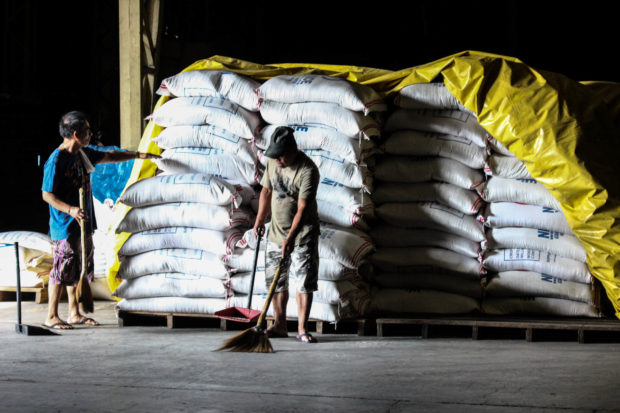MANILA, Philippines — The Department of Agriculture (DA) assured on Monday that the country has enough supply of rice for the next three months despite the P5.6 billion damage to the agriculture sector left behind by typhoons Quinta and Rolly.
“Dito sa damages ng Quinta at Rolly—ito ‘yung dalawang talagang sobrang losses natin—ay meron tayong P5.6 billion na losses sa overall agriculture, pero ang pinaka-tinamaan dito ay ‘yung sa palay,” Agriculture Secretary William Dar said in an interview on ABS-CBN’s Teleradyo.
(Because of Quinta and Rolly, we have recorded P5.6 billion in overall damage to the agriculture sector. But the most affected were rice farms.)
“Kung i-convert natin ‘yung tama sa palay sa daily consumption natin sa Pilipinas ay apat na araw lang ang bumaba. So apat na araw i-minus natin dyan sa meron tayong present inventory na 94 days, so minus four meron pa tayong tatlong buwan na sapat na bigas para sa ating bansa,” he explained.
(The damage is equivalent to four days of daily rice consumption, hence, if we subtract it from the present inventory equivalent to 94 days, we still have three months of supply of rice in the country.)
Dar also assured that the DA is prepared for the possible impact of the La Niña phenomenon to agriculture.
He added that La Niña will even be beneficial for farmers as it is predicted to become “moderate.”
“Handang-handa po tayo sa sinasabi nila na La Niña. Sabi po nila ay moderate La Niña ito. Ang ibig sabihin hindi po masyadong malakas at that will be very beneficial sa ating pagsasaka kung mayroong ulan during that period until the first quarter of next year. So we are prepared for that,” said Dar.
(We are really prepared for La Niña. They say this will be a moderate La Niña, which means rains will not be too heavy. It will be beneficial for farming if there will be rain during that period until the first quarter of next year. So we are prepared for that.)
The Philippine Atmospheric, Geophysical, and Astronomical Services Administration earlier said that most parts of the country will experience near to above normal rainfall conditions as the La Niña season will continue to persist until the first quarter of 2021.
